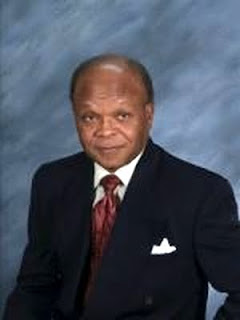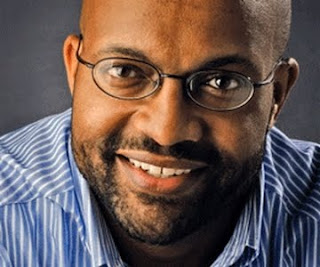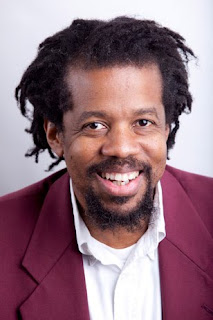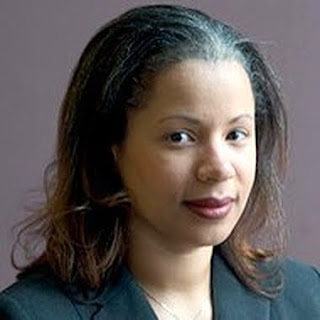CAMPBELLSVILLE, Ky. – Campbellsville University will celebrate Martin Luther King Jr. Day with two programs Wednesday, Jan. 20.
David Cozart, a CU graduate who is administrator of development at Urban League of Lexington-Fayette County, will speak at CU’s chapel program at 10 a.m. Jan. 20 in the Ransdell Chapel at 401 N. Hoskins Ave., Campellsville.
Dr. Marvin McMickle, pastor of Antioch Baptist Church in Cleveland, Ohio, and professor of homiletics at Ashland Theological Seminary, will be the featured speaker at CU’s Martin Luther King Memorial Service Jan. 20 at 7 p.m. in the Ransdell Chapel.

Dr. Marvin McMickle | The University of Louisville’s Black Diamond Choir will provide special music for the evening event.
Greater Campbellsville United and Campbellsville University are sponsoring the evening service.
ohn Chowning, vice president for church and external relations and executive assistant to the president at CU, who serves as chair of Greater Campbellsville University, |
said, “Campbellsville University students, faculty and staff and the larger community are encouraged to attend this service as we recall the legacy, affirm the dream and commit to fulfill the vision of Dr. Martin Luther King Jr.
“Dr. Marvin McMickle is an ideal speaker to remind us of the need to continue the work of Dr. King in all facets of our society. The music of the Black Diamond Choir is a great addition to the evening program.”
He also said Cozart’s address will be beneficial to both the community and to CU students, faculty and staff. Students will receive chapel credit for both events.
McMickle was a visiting professor at Yale University Divinity School in winter 2009. He is the author of 11 books including “Where Have All the Prophets Gone? Reclaiming Prophetic Preaching in America.”
He is contributing editor for “The Living Pulpit” and is a featured writer for the “National Baptist Voice,” the quarterly journal of the National Baptist Convention, USA Inc.
His sermons and essays regularly appear in “Preaching” magazine and in “The African American Pulpit.”
McMickle has been serving the church of Jesus Christ as a pastor, professor and widely published author for more than 30 years. He is a 1970 graduate of Aurora University in Illinois with a bachelor of arts degree in philosophy. He earned a master of divinity degree from Union Theological Seminary in New York City in 1973 and did two additional years of graduate study at Columbia University in New York.
McMickle earned a doctor of ministry degree from Princeton Theological Seminary in Princeton, New Jersey in 1983. He was awarded the Ph.D. degree from Case Western Reserve University in Cleveland, Ohio in 1998. He was also awarded the honorary degree of doctor of divinity by Aurora University in 1990.
He was ordained to the Christian ministry in 1973 at Abyssinian Baptist Church of New York City where he served as an assistant minister and later as the associate pastor from 1972 to 1976. He served as the pastor of St. Paul Baptist Church of Montclair, New Jersey, was president of the president of the New Jersey Council of Churches and as a member of the Montclair Board of Education.
He also served two terms as president of the Montclair Branch of the NAACP. McMickle also has served on the adjunct faculty at Princeton Theological Seminary, New Brunswick Theological Seminary and New York Theological Seminary.
He has served as senior pastor of Antioch Baptist Church in Cleveland since 1987.
During that time he led the church in establishing a ministry for people infected with or affected by HIV/AIDS. This ministry was the first of its kind in the entire country.
He has served as a faculty member at Ashland Theological Seminary since 1996.
McMickle has been married to Peggy Lorraine Noble since 1975, and they have one son, Aaron, who is a middle school teacher in New York City.
The University of Louisville’s Black Diamond Choir is the premier gospel choir at U of L.
Organized in 1969, the student gospel group has been singing and sharing the “Good News” locally and in various locations within Kentucky, Indiana, Tennessee, Ohio and Georgia.
In 2008, the choir placed second in the Louisville Urban League College Choir Explosion and was also received People’s Choice Award.
Among their other performances have been the National Black Gospel College Choir Festival, National Baptist Student Union Retreat, African Heritage Weekend on the Belvedere, “Dickens on Main Street” Christmas event, Theatre Workshop of Louisville’s productions of the “Amen Corner,” Kentucky Higher Education Council of College Presidents, the Governor’s Conference on Post-Secondary Education, the Louisville Defender’s 60th Annual Minority Consumer Expo, opening ceremonies of U of L’s Papa John’s Cardinal Football Stadium and the Black History Celebration Banquet, 422nd Air Base Squadron RAF Croughton Air Force Base in London, England.
The 100-member choir continues to represent the University of Louisville at least twice a month in the community at various churches and civic organizations. Not only does the choir minister with its music, but the choir also sponsors and annual “Feed the Families for Thanksgiving” community service project. This initiate is an outreach project serving the needy in the community.
Cozart is a 1993 graduate of CU. He studied family studies at the University of Kentucky.
He served as community involvement manager at LexLinc and at LexLinc/Lexington Local Commission for four years and six years, respectively.
He specializes in community organizations and forming collaborations between human service agencies and increasing the capacity for grassroots organizations to deliver services at the neighborhood level.
He belongs to the Lexington Urban League Young Professionals and is a licensed minister with First Baptist Church in Bracktown.
Cozart received the 2007 Leadership Lexington Distinguished Leader Award, the 2007 Person of Promise Award, the 2006 Rising Star Award from the Lexington Young Professionals Associations and the 2005 Community Service Award from the Lexington Urban League Young Professionals.
For more information about the evening event, contact Chowning at jechowning@campbellsville.edu or at 270-789-5520, and contact Ed Pavy, director of campus ministries, at ecpavy@campbellsville.edu or at 270-789-5227 for the chapel service.
Campbellsville University is a private, comprehensive institution located in South Central Kentucky. Founded in 1906, Campbellsville University is affiliated with the Kentucky Baptist Convention and has an enrollment of 3,006 students who represent 97 Kentucky counties, 30 states and 37 foreign nations. Listed in U.S.News & World Report’s 2010 “America’s Best Colleges,” CU is ranked 23rd in “Best Baccalaureate Colleges” in the South, tied for fifth in “most international students” and fourth in “up-and-coming” schools in baccalaureate colleges in the South. CU has been ranked 17 consecutive years with U.S.News & World Report. The university has also been named to America’s Best Christian Colleges® and to G.I. Jobs magazine as a Military Friendly School. Campbellsville University is located 82 miles southwest of Lexington, Ky., and 80 miles southeast of Louisville, Ky. Dr. Michael V. Carter is in his 11th year as president.
Dec. 31, 2009 For Immediate Release By Joan C. McKinney, news and publications coordinator.





























